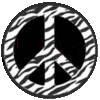Most of Central Africa's countries are poor. The Democratic Republic of the Congo was a Belgium colony until 1960. When they became independent, many Belgians left and there were only a few teachers, doctors and other professionals. This mainly happened so that Congo would stay poor. Then, Joseph Mobuto came to power in 1965, and he changed the countries name to Zaire and his own name to Mobuto Sese Seko, to make it sound more African than European. Civil war broke out and the farmers, etc. struggled, the war stopped in 1997 but they still struggled. The Democratic Republic of the Congo has gold, diamonds and cobalt and the forest provides wood. They don't earn a lot of money from it though because they scare their trading parters off with all the crimes and civil war. They also don't have railroad and ports to transport it. Cameroon if fairly stable. It is a republic, has an elected president and a lot of oil. Equatorial Guinea has elections, but it has had the same president for 25 years. Sao To Mé hand Príncipe struggle with their political instability. Unlike Cameroon and Equatorial Guinea, that have oil and earn most of their income on that, They only have Cacao. Gabon only had one president since 1967 and they haven't held multi-party elections. More than half on Gabon's income comes from oil, just like Congo's. Congo also gets income from forest products though. A civil war in the late 1990's hurt its economy. Angola won its independence from portugal in 2002 and since then it has become more stable. In Zambia about 85% of the population are farmers, but they are rich anyways with copper mines. Its economy is slowly growing but it is in a lot of debt and inflation. In Malawi, about 75% of the population are villager living in rural areas. Help from foreign countries and religious groups Ehas helped its economy. People think that it will soon be able to rely on itself not other countries.
Some health issues are war and civil war. Land mines are still lying around on the fields, making it dangerous for farmers and kids playing id former war areas. People also can't work if there is fighting going on outside. Another issue is malaria. It is the most common death cause in central africa and every 30 seconds a child dies on malaria. There is almost no treatment and the treatment that they have is very expensive, too expensive for most of the victims. HIV and AIDS are another issue, and so is Malnutrition.
As you can see, there are a lot of issues in Central Africa, but the Countries are improving their economies




